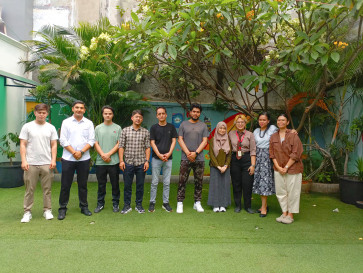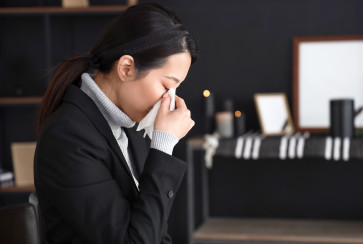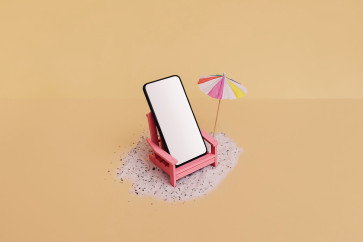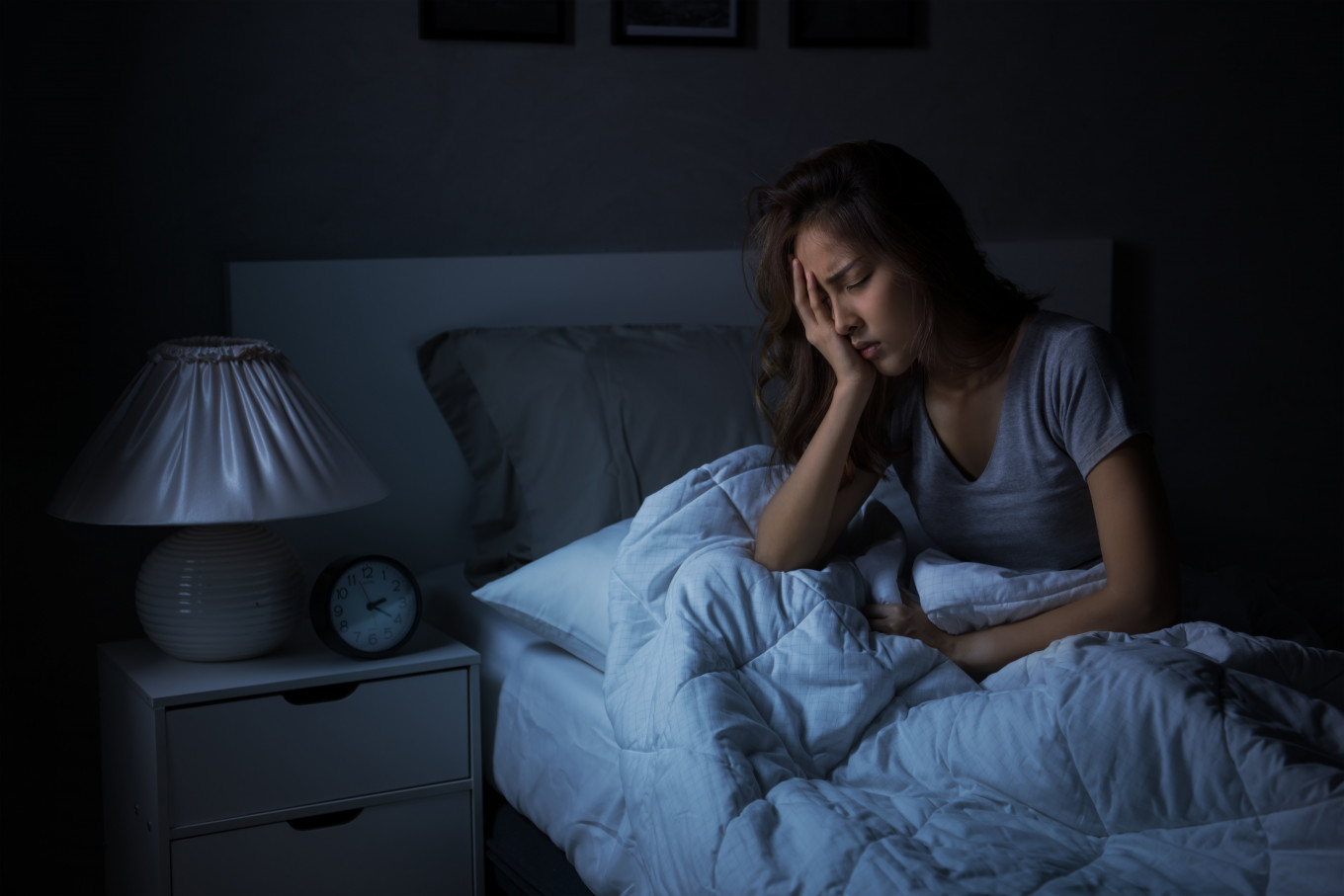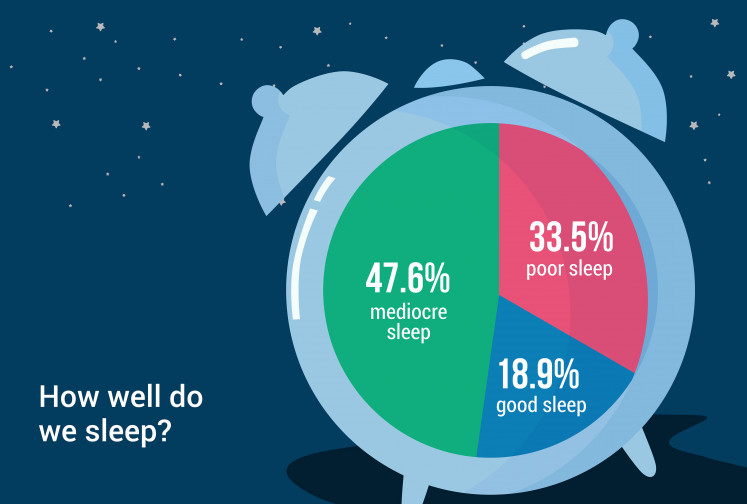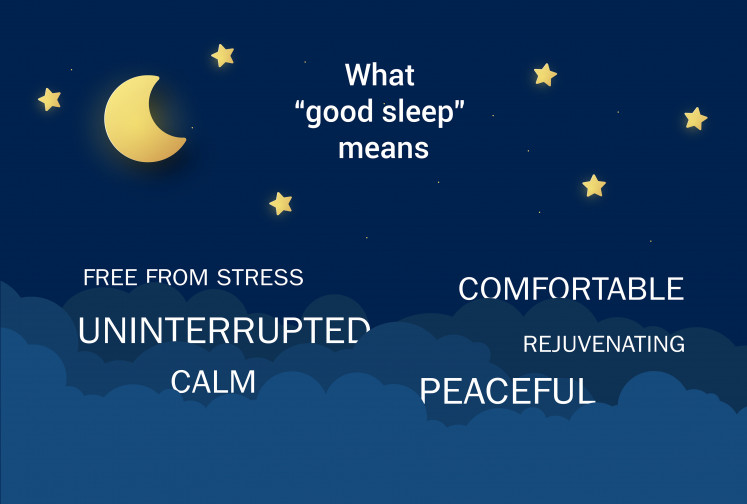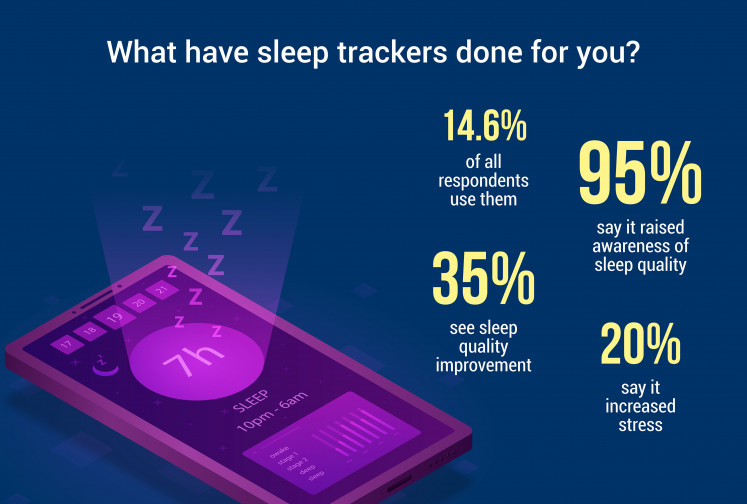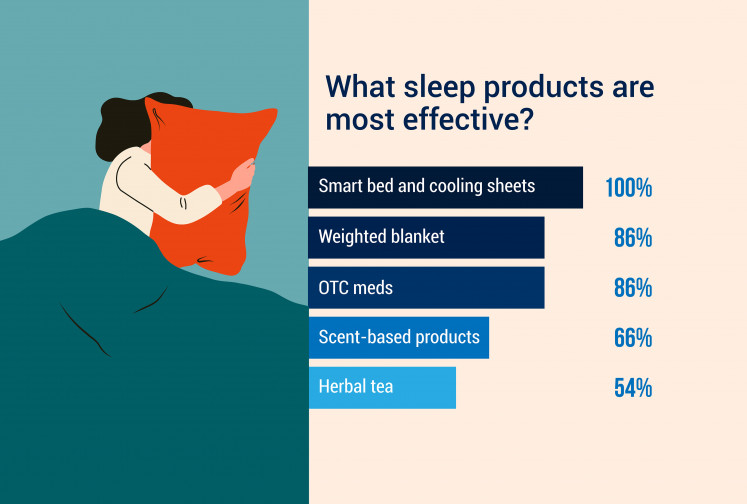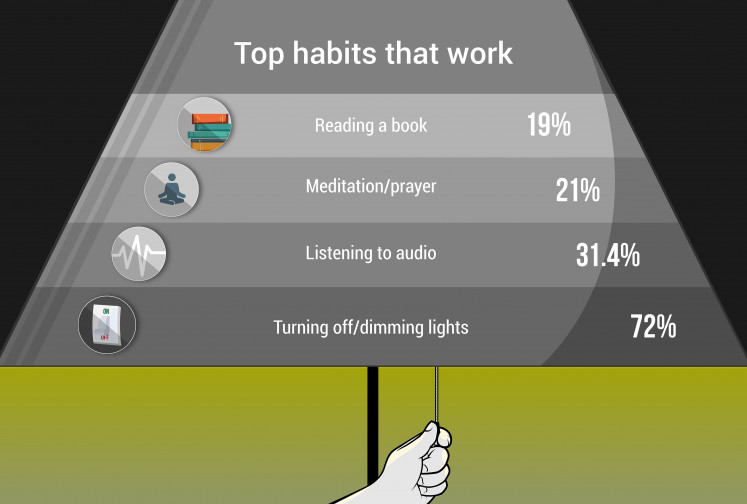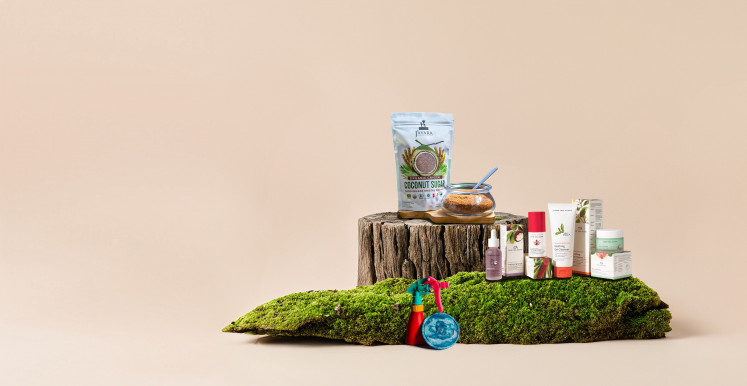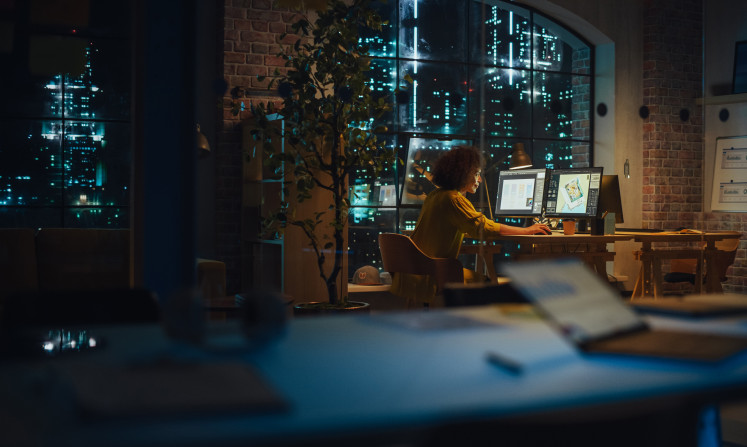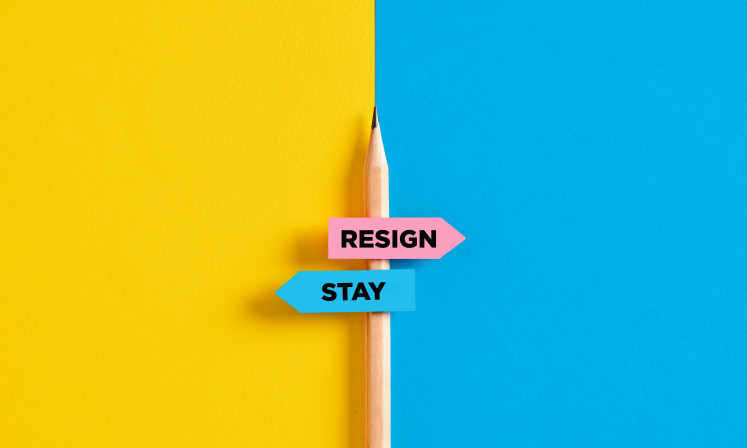Everybody sleeps, but not everyone gets good sleep. Whether it’s racing thoughts, noisy neighborhoods or early morning commutes, restful nights are increasingly out of reach.
Poor sleep isn’t just about feeling cranky. Chronic sleep deprivation has been linked to memory issues, high blood pressure, diabetes and weakened immunity. In Indonesia, a 2024 study by Alfian et al. also connected sleep disturbances to a higher risk of depression.
The ideal, seven to eight hours of sleep, remains elusive for many. A YouGov survey from December 2023 found that 51 percent of Indonesians sleep less than seven hours a night. Most of them wish they could sleep more.
And they’re trying. From cutting caffeine to buying supplements, Indonesians aren’t short on tips, tools or TikTok advice. But what actually works?
To find out, The Weekender ran an informal survey, gathering responses from 137 people aged 18 to over 65. Here's what we learned.
Are we sleeping well?

Thank you!
For signing up to our newsletter.
Please check your email for your newsletter subscription.
How prevalent is bad sleep exactly? A third of our respondents experience poor sleep quality, higher than the 18.9 percent who report having good quality sleep.
Graphic 1 (JP/BNDL Studios)
But what does “good quality” sleep actually mean? It’s not as simple as getting your seven to eight hours.
Most people seem to be on the same page, defining it as falling asleep quickly, sleeping long enough hours, not waking during the night and waking up feeling rejuvenated.
But aside from these mostly measurable markers, one theme came up again and again: stress. For many, good sleep means not just physical rest, but mental relief.
One middle-aged respondent wrote, “Sometimes I find it hard to sleep well because my mind is still full of unfinished tasks or worries about tomorrow. When that happens, I end up staying awake longer and can’t really relax. It makes me realize that a good night’s sleep is not just about how many hours I sleep, but whether I feel calm, comfortable and free from stress before going to bed.”
Another, in their early 20s, wrote, “A good night’s sleep is knowing that I go to sleep without any responsibilities or burden that could pester my mind.”
Graphic 2 (JP/BNDL Studios)
The difficulty of attaining peaceful sleep seems to affect everyone indiscriminately, regardless of age.
It might be easy to assume that younger adults are the ones with more sleeping problems, especially with the booming sleep aid market and constant stream of complaints on social media about jompo youngsters, twentysomethings who say they feel like retirees with “horrible sleeping schedules”.
But in our survey, poor sleep was most common among older respondents: 49 percent of those aged 45–54 and 40 percent of those aged 55–64 reported experiencing poor sleep quality.
Even those not currently working or studying reported poor sleep, suggesting that the issue runs deeper than work stress or screen time.
If more than half of Indonesians are underslept, maybe the problem isn’t just hustle culture or physiology. Maybe it’s systemic.
How do we know if we’re sleeping well?
Sleep trackers, typically worn as rings, watches or embedded in smart mattresses, monitor sleep cycles, interruptions and even room temperature. They offer insights, not solutions.
While 19 out of 20 respondents who use such devices said they were helpful in making them aware of their habits, only 35 percent of users saw improvements in sleep quality because of them.
Instead of helping, a fifth of users even said sleep trackers made them more stressed. Just like how people can stress over monitoring their diet, those who track sleep can get lost in the numbers, trying to aim for the best score while forgetting that the main goal is to get healthier.
Graphic 3 (JP/BNDL Studios)
Despite their increasing popularity, though, sleep trackers are only being used by 14.6 percent of our total respondents. For many, the cost, both financial and emotional, may not be worth it. Sleep trackers may be everywhere online, but they’re still a niche tool in practice.
What helps us sleep better?
Whether it’s to help people fall asleep faster or to make their sleep more restful, sleep aid products are a growing business.
According to Statista, sleep aids like over-the-counter medications and supplements generated a total worldwide revenue of US$5.53 billion in 2025, with Indonesia’s projected to reach $70.89 million. The demand here is rising, driven by urbanization and increasing stress levels, the site reported.
Beyond medicine and supplements, the sleep aid market now includes smart sleep technology, innovative bedding and other therapeutic options. In this sea of products, which ones actually help?
Graphic 4 (JP/BNDL Studios)
Despite the popularity of consumables like herbal tea or essential oils, the most effective products were tactile, long-term investments, according to our respondents. All those who tried smart beds or cooling sheets said they helped. Weighted blankets followed close behind, with around 86 percent of their users experiencing improvement in sleep quality directly due to it.
Still, these high-performing options were among the least used.
While consumers generally found most over-the-counter medications effective, only 54 percent of the respondents who have tried herbal tea found it helpful. Similarly, a third of scent-based product users deem them unsuccessful.
The higher popularity of these products, despite being less effective, may suggest that Indonesians prefer the accessibility and affordability of items they can find easily at a nearby pharmacy.
Although bedding products are generally more expensive than herbal tea and essential oils, they are a one-time purchase suited for long-term use. But maybe the higher commitment involved in buying bedding products, as opposed to consumables, is exactly what makes them less appealing.
At the end of the day, whether improved sleep is worth the price tag comes down to the individual. It mattered enough for 14.6 percent of our respondents to have spent more than Rp 1 million ($61) on sleep-related products.
Free fixes
Not everything needs to be solved by spending money, especially when there are free alternatives.
More than 90 percent of our respondents have tried their own strategies to improve sleep quality. Compared with the roughly half who have purchased sleep aid products, these habit changes are clearly more accessible, affordable and appealing.
Graphic 5 (JP/BNDL Studios)
Even small tweaks in your room can go a long way. Something as simple as adjusting the lights has helped around 72 percent of respondents, whether by turning them off completely or simply dimming them.
Putting your gadgets down also makes a difference. Instead of doom-scrolling, some respondents turn to books or audio to wind down. Around 19 percent said they sleep better after reading a book, whereas having some noise in the background, white noise, music or podcasts, has helped 31.4 percent of respondents.
One respondent wrote, “Listening to something helps me sleep because my mind doesn’t wander around.”
Keeping relaxed through meditating or praying was also effective for many, with 21 percent of respondents reporting better sleep as a result.
Beyond nighttime routines, many respondents have explored long-term lifestyle changes in the hopes of improving their sleep. More than half have considered exercising and sleeping at consistent times. Others have also become mindful about when they eat or drink caffeine.
While long-term lifestyle changes may take time to show results, the simpler night-to-night habits are already making a difference for many. They’re low-cost, low-risk and, if they don’t work, you haven’t lost much.
There is no one-size-fits-all solution for better sleep. Some respondents said they sleep better while cuddling a loved one, while others admitted they would rather not sleep beside their snore-prone partner.
Maybe the fix isn’t the most expensive product money can buy, but the small tweaks that suit your life. And the best way to sleep better might just be figuring out what works for you.
Siti Syafania Kose is an intern for The Jakarta Post’s Creative Desk. They read tarot with a collection of decks that they suspect have personalities of their own.






